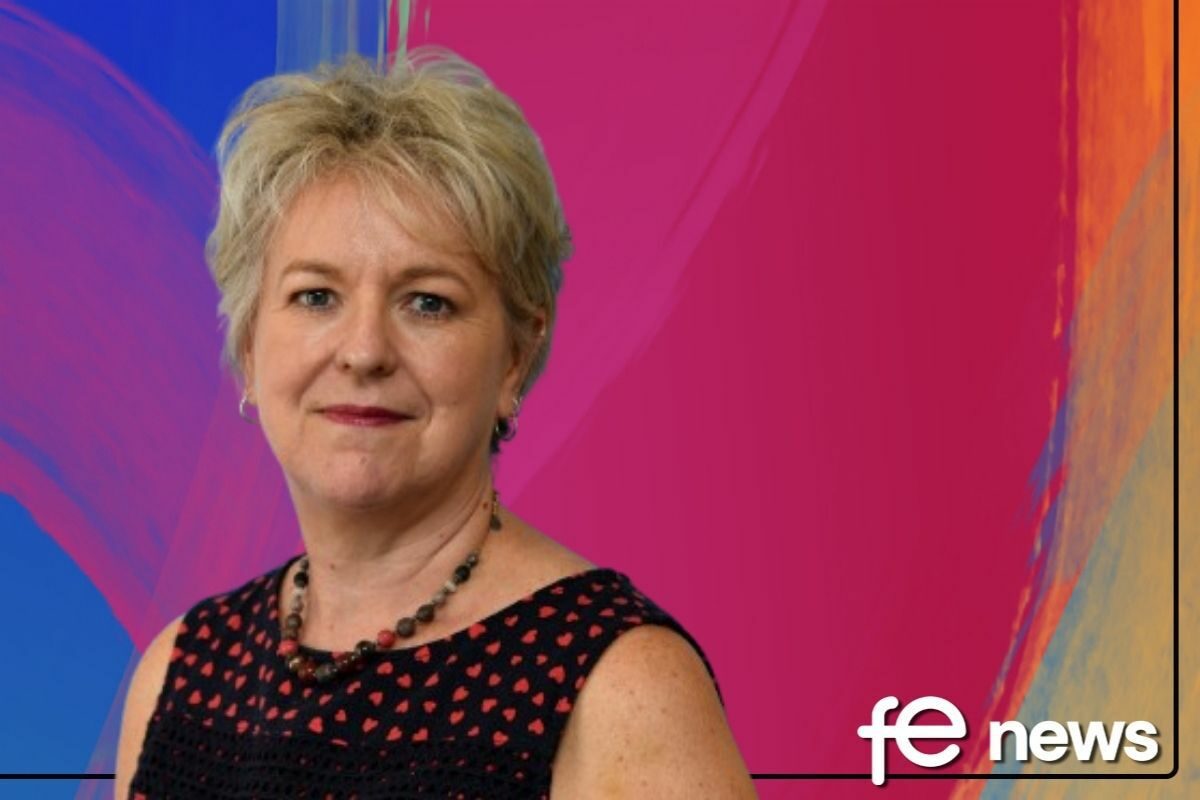Deferring Ofsted inspections
What this deferral policy applies to
This deferral policy applies to inspections of/visits to:
maintained schools and academies (and other types of school inspected under sections 5 and 8 of the Education Act 2005)
independent schools inspected by Ofsted (under sections 109(1) and (2) of the Education and Skills Act 2008)
providers of further education and skills under part 8 of the Education and Inspections Act 2006
area special educational needs and disabilities (SEND) services for children and young people under section 20 of the Children Act 2004
providers of initial teacher education under section 18B of the Education Act 1994 and part 8 of the Education and Inspections Act 2006
local authority children’s services and secure training centres (under the Education and Inspections Act 2006)
residential special schools and some boarding schools, residential provision in further education colleges and independent specialist colleges (under section 87 of the Children Act 1989)
early years and childcare provision under sections 49, 60 and 77(2)(b) of the Childcare Act 2006
childminder agencies under sections 51D and 61E of the Childcare Act 2006
children’s homes, including secure children’s homes, adoption support agencies, voluntary adoption agencies, independent fostering agencies, residential family centres, and residential holiday schemes for disabled children (under the Care Standards Act 2000)
We refer collectively to those we inspect or regulate as ‘providers’ of education or care.
COVID-19 and deferrals
The COVID-19 pandemic poses a unique set of ever-changing challenges for all providers. We know that these challenges and the impact of COVID-19 will vary considerably from provider to provider. While our responsibilities towards children and young people remain, we recognise that there will be circumstances when it is not the right time for an inspection to go ahead. If providers have any concerns about the timing of their inspection or visit, they should request a deferral.
We judge every request on its own merits, according to the individual, exceptional circumstances relating to COVID-19. Restrictions that require providers to close, or other restrictions as a result of COVID-19, may be a relevant factor for deferral. A request for a deferral, even if it is refused, will never have an impact on how we view a provider on inspection.
If an inspection/visit has started but has to be paused due to a public health or other concern, we may take steps to complete it at a later date. Please refer to our guidance on gathering additional evidence to secure an incomplete inspection.
Requesting a deferral
If you are a provider considering a request to defer your inspection/visit, you should study the paragraphs and criteria below carefully before making the request.
You should make the request at the earliest opportunity to the inspector who notifies you of the inspection/visit. You should confirm this in writing (preferably by email to the notifying inspector) so that we can consider it promptly.
We will continue to make arrangements for the inspection/visit while considering the request for deferral.
Circumstances for deferring Ofsted inspections and visits
There are a limited number of circumstances when we may decide that an inspection/visit should not go ahead on the planned dates. The examples below are indicative of situations where we may grant a request for a deferral. They do not provide automatic grounds for a deferral, nor are they exhaustive. We must consider each case separately and on its own merits.
This policy sets out our approach to deferring, cancelling and re-scheduling. It does not apply to decisions to re-schedule the start date of an inspection/visit within 5 working days. Inspections of/visits to schools and colleges may still go ahead when all, or substantial numbers of, pupils are not on site but continue to be educated through remote or blended learning.
Normally, we may only defer or cancel an inspection/visit if:
the headteacher, centre manager, childcare provider, nominated individual, registered manager and/or registered provider or similar authority, or a member of the provider’s senior management team is subject to a current police investigation or serious concern from another agency that would be compromised by an inspection of, or visit to, the provider
the provider has experienced a recent major incident, such as: a fatality involving a pupil, child, service user, trainee or a member of staff; serious injury or serious/infectious illness at a childcare provider; death of a member of a household where the childcare takes place; or serious incident when the presence of an inspector would have an adverse impact on the safety and well-being of children, young people or adults
the provision is due to merge, close or move and it is decided that no useful purpose will be served by inspecting it
concerns in a local area mean that an inspection/visit would be inappropriate (such as a security incident or other major incident that means the police are focused on public safety)
there are COVID-19 restrictions in the local area that require providers to close entirely. (If government guidance confirms that providers are safe to operate and they remain open, we will not normally defer or cancel)
the relevant setting is closed to all users – for example, owing to a staff training day or adverse weather conditions that make access difficult or dangerous – for at least half of the time for which the inspection/visit has been scheduled (this does not apply to pre-registration inspections of independent schools or when substantial numbers of pupils are not on site but continue to be educated through remote or blended learning)
at least three quarters of the users will not be at the provider’s setting or with their employer – for example, owing to a school trip, holiday or a religious festival – for at least half of the period for which the inspection/visit has been scheduled (this does not apply to registered childcare settings or to pre-registration inspections of independent schools or when substantial numbers of pupils are not on site but continue to be educated through remote or blended learning)
a school has very recently converted to become an academy – in these circumstances, Her Majesty’s Chief Inspector (HMCI) reserves the right to go ahead with the inspection/visit if they deem it necessary or to schedule the academy’s first inspection/visit at a later date
a further education and skills provider is no longer in receipt of relevant public funding
a childminder agency no longer has childminders registered with it
other exceptional circumstances (including those outlined above regarding COVID-19) that Ofsted’s relevant regional director judges to justify deferring or cancelling
Ofsted puts the interest of children and learners first. It is only in exceptional circumstances, such as those set out above, that we would consider granting a deferral. Anyone requesting a deferral should explain fully the nature of the circumstances in their request.
In the case of a deferral request made due to absence or illness of the headteacher, centre manager, childcare provider, nominated individual, registered manager and/or registered provider, or similar authority, the relevant Ofsted regional director will determine whether the inspection/visit will take place.
Building and/or refurbishment work is not a reason for deferral if users are still on site.
When a deferral is requested, we will consider whether the timing of any rescheduled inspection/visit would cause this to fall outside of any prescribed intervals or windows. For regulated early years and social care settings, we will also carry out a risk assessment to determine whether any other regulatory responses would be appropriate.
Deferral of section 8 monitoring inspections of maintained schools and academies
In the case of a section 8 monitoring inspection for a school judged to require improvement, have serious weaknesses or require special measures, we consider that the presence of the headteacher is important in helping inspectors understand a school’s improvement journey.
We may, therefore, defer the section 8 monitoring inspection if the headteacher is out of school, unless the headteacher is absent for a prolonged period of time, for example due to ill health.
Deferral of independent school inspections
When the standard inspection of a school has been previously deferred on 2 consecutive occasions because there were no pupils on roll, we will not defer the inspection for a third time. The purpose of the inspection will be to check the school’s compliance with the independent school standards required for continued registration. Inspectors will still make qualitative judgements about the effectiveness of the school and will comment on the extent to which it is ready to educate and safeguard pupils.
We may defer an inspection of an independent school in the case of unavoidable absence of the headteacher or proprietor when this person is the only full-time teacher in the school, at the discretion of the relevant Ofsted regional director.
Pre-registration inspections must not be deferred when the proposed school states that it is not ready for inspection. Incomplete building works is not a reasonable justification for deferring inspection. The Department for Education (DfE) expects proposed new schools to be ready to undergo a pre-registration inspection, since the provision wishes to educate (and, for boarding/residential special schools, accommodate) pupils in the near future. The DfE informs proposed new schools that they should not apply to register if they will not be ready to operate within the proposed timescale. In cases when proposed new schools strongly resist a pre-registration inspection, we will report this to the DfE.
When an independent school is also the provider of a regulated social care service, we will carry out a risk assessment to consider whether any other regulatory responses would be appropriate.
When we are informed that an independent school is no longer operating, through the notification telephone call for a pre-registration, material change or standard inspection, we will consult with the DfE. The DfE may commission us to carry out an emergency inspection to check compliance with the independent school standards, and to take copies of the admission and attendance registers.
We will always consult with the DfE before granting a deferral of inspection of any type of independent school.
Deferral of area SEND inspections
We do not anticipate having to defer the inspection of area SEND provision other than in exceptional circumstances, such as an extreme weather event or other major incident.
If local areas have concerns about the timing of an inspection, they may submit a deferral request, with any supporting reasons, to the lead inspector at the point of notification of the inspection. We will consider each individual request on its merits. All such requests will be considered jointly by Ofsted and the Care Quality Commission, in line with this policy. If a local area requests a deferral of its inspection, the lead inspector must notify Ofsted through the appropriate region as soon as possible. The absence of the clinical commissioning group’s chief executive or director of children’s services or their equivalent will not normally be a reason for deferring an inspection.
In exceptional circumstances, it may prove difficult for the inspection coordinator to contact the provider. In these cases, the inspection coordinator will contact a designated inspector to discuss the situation. For independent school inspections, the designated inspector will check that the DfE has no reason to believe that the school is no longer operating.
The designated inspector will normally advise that the inspection/visit will go ahead and that the inspection coordinator should continue to try and contact the provider while the lead inspector travels to the provider. If there continues to be no answer, it will be carried out as an unannounced inspection/visit.











Responses